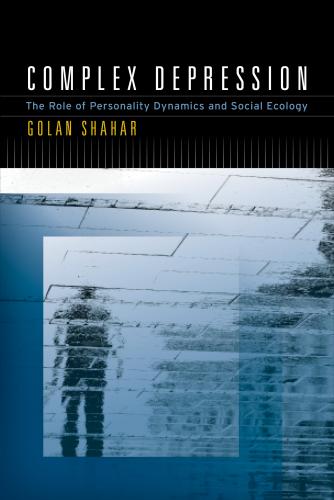Complex Depression: The Role Of Personality Dynamics &....
| Item Information | |
|---|---|
| Item#: | 9781433836077 |
| Edition | 01 |
| Author | Shahar, Golan |
| On Hand | 1 |
In this empirical yet deeply humanistic work, Golan Shahar investigates the dynamic relationship between personality and social factors in complex depression, identifying avenues for research and offering hope for sufferers and treatment providers.
Shahar synthesizes research and clinical wisdom to enhance our understanding of complex depression, a mental illness defined by its chronicity, heterogeneity, and serious consequences including suicide. He focuses on Melanie Klein’s object relations theory and depressive position, reconceptualizing both from a transtheoretical perspective, with an emphasis on four key factors: demeaning affect; affect regulation; maladaptive schemas and scripts; and a time axis consisting of past, current, and projected future experiences. Shahar also explores how individuals externalize self-critical feelings, in turn creating a malignant social environment and a vicious cycle of self-recrimination. To explain this toxic relationship, Shahar presents ecodynamics, a novel theory examining relationship patterns between the self and their social contexts.
The book offers tools and procedures for assessing complex depression and guidelines for integrative psychotherapy. Case examples, including the author’s profound personal investigation into his stepfather’s suicide, vividly demonstrate the causes and consequences of complex depression.
Shahar synthesizes research and clinical wisdom to enhance our understanding of complex depression, a mental illness defined by its chronicity, heterogeneity, and serious consequences including suicide. He focuses on Melanie Klein’s object relations theory and depressive position, reconceptualizing both from a transtheoretical perspective, with an emphasis on four key factors: demeaning affect; affect regulation; maladaptive schemas and scripts; and a time axis consisting of past, current, and projected future experiences. Shahar also explores how individuals externalize self-critical feelings, in turn creating a malignant social environment and a vicious cycle of self-recrimination. To explain this toxic relationship, Shahar presents ecodynamics, a novel theory examining relationship patterns between the self and their social contexts.
The book offers tools and procedures for assessing complex depression and guidelines for integrative psychotherapy. Case examples, including the author’s profound personal investigation into his stepfather’s suicide, vividly demonstrate the causes and consequences of complex depression.
Short Description
This book argues that depression's most complex and severe manifestations arise from the dynamic relationship between personality and social factors.
Table of Contents
Foreword
Thomas Joiner
An Introduction to the Personality and Social Dynamics of Complex Depression
Acknowledgments
Part I. Depression and Personality
Chapter 1. The Complications of Depression
Chapter 2. The Role of Personality in Complex Depression
Part II. Psychodynamics and Ecodynamics
Chapter 3. Reformulating Klein’s Object Relations Theory and the Depressive Position
Chapter 4. Human Ecology and Development Within Social Contexts: The Theory of Ecodynamics
Part III. The Ecodynamics of Complex Depression
Chapter 5. Applying the Reformulated Depressive Position and Ecodynamics to Complex Depression
Chapter 6. Suicidal Depression: A Case Study of Complex Depression’s Most Severe Consequence
Chapter 7. Practical Implications for Assessment: Evaluating Complex Depression Via the Reformulated Depressive Position and Ecodynamics
Chapter 8. Practical Implications for Psychotherapy: Specific Interventions for Treating Complex Depression
References
Index
About the Author
Thomas Joiner
An Introduction to the Personality and Social Dynamics of Complex Depression
Acknowledgments
Part I. Depression and Personality
Chapter 1. The Complications of Depression
Chapter 2. The Role of Personality in Complex Depression
Part II. Psychodynamics and Ecodynamics
Chapter 3. Reformulating Klein’s Object Relations Theory and the Depressive Position
Chapter 4. Human Ecology and Development Within Social Contexts: The Theory of Ecodynamics
Part III. The Ecodynamics of Complex Depression
Chapter 5. Applying the Reformulated Depressive Position and Ecodynamics to Complex Depression
Chapter 6. Suicidal Depression: A Case Study of Complex Depression’s Most Severe Consequence
Chapter 7. Practical Implications for Assessment: Evaluating Complex Depression Via the Reformulated Depressive Position and Ecodynamics
Chapter 8. Practical Implications for Psychotherapy: Specific Interventions for Treating Complex Depression
References
Index
About the Author

